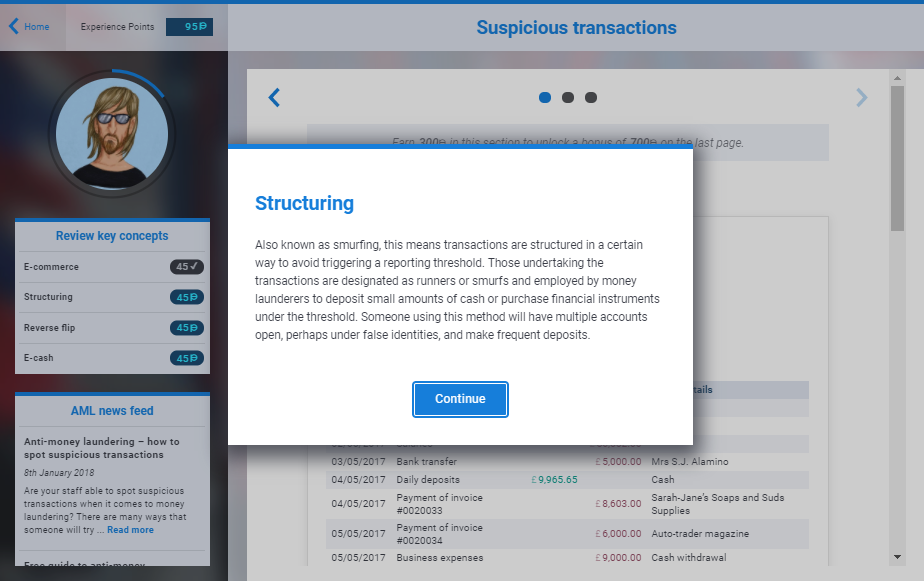New anti-bribery training from VinciWorks
Anti-Bribery: Know Your Deal drops users into immersive scenarios to test their knowledge, understanding and ability to uncover risks of bribery in their working life.
Despite the UK Bribery Act having come into force in 2010, bribery is still a hugely problematic issue in corporate life. Billions of pounds of fines are levied every year and frequent reports hit the headlines of investigations and prosecutions from the US Department of Justice and UK Serious Fraud Office.
Bribery cases have ensnared some of the world’s largest companies, biggest sporting bodies and most powerful politicians. The propensity for some people to act corruptly might never change, but our approach to training and compliance can.
In Anti-Bribery: Know Your Deal, users face a set of realistic characters and scenarios from all walks of life, some of whom may be trying to offer, or ask for, a bribe. It is up to users to assess each situation and decide on the best course of action based on company procedures and the law.








